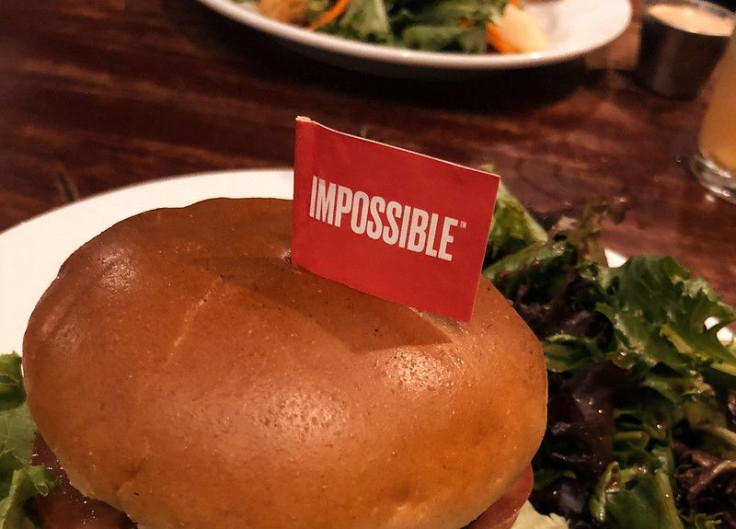Where's The Beef? Impossible Foods Unveils Plant-Based Pork

KEY POINTS
- Animal agriculture is blamed for accelerating the destruction of biodiversity and ecosystems
- Impossible Foods hopes pork will give it a foothold in China, the biggest consumer of pork products
- The National Pork Producers Council rejects calling the product "pork," saying you can't make pork from plants
Now that Americans have gotten used to plant-based burgers, meat-alternative food-makers are targeting the breakfast sausage crowd with a substitute for pork, the most-consumed meat in the world.
The move comes as climate change activists highlight the environmental damage caused by raising animals for food and swine fever is sweeping through Asia.
“Pork being the ubiquitous meat it is felt like the natural way to continue our mission,” David Lee, Impossible Food’s chief financial officer, told the Wall Street Journal.
The National Pork Board reported pork consumption worldwide represented more than 40% of all meat consumption in 2018.
Sales of meat-free sausages, nuggets and burgers currently comprise just a fraction of meat consumption, but market share is growing. CB Insights pegs the global meat market, including beef, chicken and pork, at $1.8 trillion. Allied Market Research estimates the meat-free market will grow to $8.1 billion by 2026, up from $4.1 billion in 2017.
Impossible Foods rolled out its next generation of products at the Consumer Electronics Show in Las Vegas Monday, offering tastes of its Impossible Pork and Impossible Sausage, which makes its debut at Burger King later this month.
Impossible Pork is designed for use in ground meat dishes, including spring rolls and dumplings, and is aimed at gaining a foothold in China, the world’s biggest consumer of pork products. The Chinese consumed nearly 88 pounds per capita in 2018.
“Like ground meat from pigs, Impossible Pork is characterized by its mild savory flavor, adding delicate depth and umami richness without being gamey or overpowering,” Impossible Foods said in a press release.
The National Pork Producers Council isn’t happy with the development.
“What’s impossible is to make pork from plants. This is a brazen attempt to circumvent decades of food labeling law and centuries of precedence,” said Dan Kovich, science and technology director for the trade group, told the Journal.
Impossible Foods said its product has nearly as much protein as pork – 16 grams versus 17 grams – and more iron, 3 mg versus 1 mg. The big advantages are in cholesterol and fat content: Impossible Pork has just 7 grams of saturated fat, compared to 11 grams for pork, and while pork contains 86 mg of cholesterol, Impossible Pork contains none.
The U.N. Food and Agriculture Organization estimates 47 pigs are killed a second on average to meet the world’s appetite for pork. Furthermore, the World Wildlife Fund has blamed animal agriculture for speeding the collapse of wildlife diversity and ecosystems.
“Industrial pork production releases excessive amounts of nitrogen and phosphorus into the environment, and the high doses of copper and zinc fed to pigs to promote growth accumulate in the soil. Feces and waste often spread to surrounding neighborhoods, polluting air and water with toxic waste particles,” Impossible Foods said, adding production methods pose a threat to public health because of the widespread use of antibiotics, creating drug-resistant bacteria.
CB Insights reported U.S. meat production hit a record 100 billion pounds in 2018, and Americans consumed an average 220 pounds each, up from 167 pounds in 1960.
Impossible Pork is designed for kosher and halal certification, opening it up to Jews, Muslims, Hindus and some Christian sects that reject pork products.
Impossible Sausage is set to join the Impossible Whopper at Burger King later this month. It is set to debut at 135 Burger Kings in the Croissan’wich in Savannah, Georgia; Lansing, Michigan; Springfield, Illinois; Albuquerque, New Mexico, and Montgomery Alabama.
Rival Beyond Meat (BYND) began supplying plant-based sausage to Dunkin’ Brands Group (DNKN) last year, mainly for breakfast sandwiches at Carl’s Jr. and Tim Hortons restaurants.
© Copyright IBTimes 2024. All rights reserved.






















